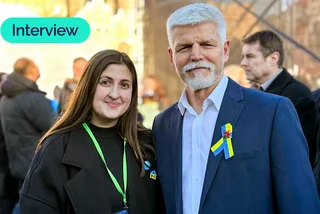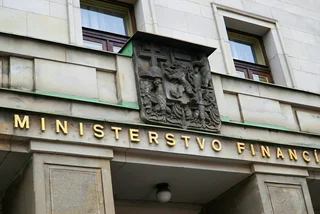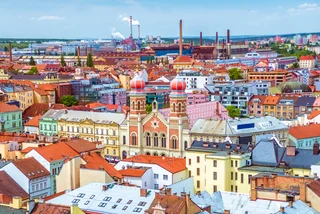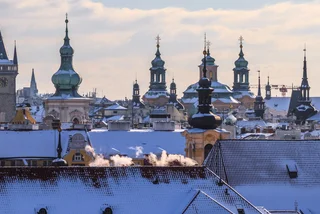Czechia is progressing on several major social issues, but is also falling behind in others. A new report from Amnesty International highlights the country’s recent wins, including the adoption of a consent-based rape law, expanded rights for same-sex couples, and a memorial to Roma Holocaust victims.
But it also points to serious failures: lax gun laws, stalled climate policy, arms exports to conflict zones, and delayed compensation for forced sterilizations. From refugee integration to abortion access, the report paints a complex picture of a country navigating change while struggling to confront the consequences of inaction on today’s most urgent issues.
PARTNER ARTICLE
Gun control lax after Charles University shooting
Despite some of the loosest gun laws in Europe, Czechia has yet to introduce significant reforms after the tragic December 2023 shooting at Charles University, where a student killed 14 people and injured 25 using legally owned firearms. A working group is reviewing arms laws, though no draft reform has yet been introduced.
Arms exports to conflict zones continue
Amnesty International highlights Czechia’s continued arms exports to countries with questionable human rights records, including Israel, Saudi Arabia, and the UAE. Despite growing concerns about human rights abuses in these regions, the Czech government has defended its arms trade as compliant with international regulations, stating that licenses are granted only after risk assessments by the Ministry of Foreign Affairs and the Ministry of Defense.
Progress for LGBTQ+ rights, but gaps remain
In a positive development, Czechia has equalized the rights of registered same-sex couples with those of married couples, though same-sex couples still cannot jointly adopt children. A Constitutional Court ruling also abolished the requirement for transgender individuals to undergo sterilization before changing their legal gender, though full legal protections for transgender people are still being finalized.
Reproductive rights under scrutiny
While abortion remains legal in Czechia, the country’s abortion law is considered outdated by Amnesty International. Many medical facilities continue to refuse to perform abortions on women from other EU countries, despite differing opinions from the Health Ministry and the ombudsman. The Senate also rejected the Istanbul Convention, a key treaty aimed at combating violence against women.
New legal definition of rape: Progress in tackling sexual violence
In a landmark move, the Czech Republic adopted a new legal definition of rape, expanding the scope to include non-consensual sex in all forms. This revision marks a significant shift in addressing sexual violence. Amnesty International lauds this progress, alongside proposed mandatory training for judges to ensure consistent application of the law.
Compensation for forced sterilizations still delayed
Czechia has taken steps toward compensating women who were forcibly sterilized between 1966 and 2012, but Amnesty International criticizes the slow process. As of the end of last year, only 720 women received compensation, leaving hundreds more still waiting for the promised CZK 300,000. A proposed bill extending the compensation deadline to 2026 is under review.
Failure to integrate Ukrainian refugees into the workforce
Czechia has welcomed over 370,000 refugees from Ukraine, but Amnesty notes that many are employed in jobs far below their qualifications, missing an opportunity to harness their skills. The Labor Ministry has launched retraining and language programs for refugees, but acknowledges that the qualification recognition process remains slow. Furthermore, the far-right Freedom and Direct Democracy (SPD) movement has been accused of using racist and xenophobic rhetoric, highlighting the ongoing struggles of refugees in Czech society.
Roma Holocaust Memorial opens in Lety
Amnesty International commends Czechia for opening a memorial to the Roma Holocaust in Lety, near Písek. This marks an important step in recognizing the persecution of the Roma community during World War II. The memorial is a significant act of historical reconciliation, though Amnesty continues to urge more work on addressing the legacy of discrimination against the Roma.
Climate law still in limbo
Despite the urgency of the climate crisis, the Czech government failed again to adopt a binding climate law with specific emissions reductions and sustainability targets. Amnesty International highlights this as a significant missed opportunity for the country to take a leadership role in addressing environmental challenges.
Steps toward stronger child protection
Amnesty International highlights two significant developments in child rights: the creation of a children’s ombudsman role (effective mid-2025) and a legislative proposal to ban corporal punishment. While still in progress, both measures represent a shift toward greater institutional protection for children's rights in Czechia, aligning the country more closely with international human rights standards.













 Reading time: 3 minutes
Reading time: 3 minutes 































